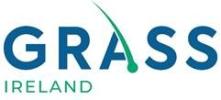
Global Registry of Alopecia Areata Disease Severity and treatment Safety - Ireland (GRASS - Ireland)
National and International Skin Registry Solutions (NISR) CLG
2021
Alopecia Areata (AA) is an autoimmune hair loss condition that affects approximately 2% of the population. It typically presents with patchy to complete loss of scalp hair, though other hair bearing sites and the nails can also be affected. Research shows that AA has a major impact on physical and psychological health. The aim of this project is to establish an Irish AA patient registry, which enables clinicians to record long-term, real-world data.This data will be pivotal in informing clinical practice, monitoring safety of current and emerging therapies, promoting AA research and, most importantly, improving patient care. For people with AA who agree to take part, the registry will collect information relating to demographics and diagnosis of patients at baseline and their health status at each hospital visit, (e.g.
height, weight, blood test results, procedures, treatments, health complications,
healthcare service use and information about how the condition and treatments impact patients’
quality of life). As this is an observational study, participants in the registry will not undergo any treatment or interventions that is additional to the usual standard of care.
The objectives of the GRASS - Ireland registry are:
1. To identify, collect, record, store and analyse information relating to the prevalence, incidence, disease severity, burden and
prognosis of AA in Ireland and relate this to international evidence being generated within sister registries internationally as part of the global GRASS network.
2. To collect data on current AA therapeutics in Ireland with a view to assessing their safety,
effectiveness, cost-effectiveness and derive optimal treatment strategies.
3. To facilitate and support the use of the data collected in approved research projects and in the planning and management of AA
services.
4. To provide advice, information and assistance in relation to any aspect of AA to health services, other medical healthcare
providers and persons with AA.
5. To provide evidence for advocacy.
6. To provide data on long term prognosis for AA patients nationally and internationally – including, but not limited to, treatment
outcomes, management regimes, quality of care and international best practice.
7. To identify patients for clinical trials and facilitate the undertaking of clinical trials and future pharmacovigilance.
National and International, the study duration is ongoing.
GRASS-Ireland is an observational study collecting and analysing the data of adults and children with Alopecia Areata (AA) in Ireland over their lifetime.
As an encounter-based registry, data will be collected from each interaction for AA-specific care by investigators at selected sites, on an ongoing basis using a secure, online platform.
This data will be used to better understand the background, treatments and outcomes of people with AA. This will be used for advocacy and to support planning of services, management and assistance of this group. The registry may also be useful to identify patients who could participate in suitable clinical trials and support pharmacovigilance studies.
The information generated will be of interest to physicians, researchers, health service providers, regulatory authorities, the pharmaceutical industry and persons with AA. It will guide the development of international best practice standards and the treatment strategies to meet these.
GRASS – Ireland is a founding member of a collaborative, global network of sovereign GRASS registries that aim to better understand the health, well-being and treatment of people with AA.
Key users of this data collection include; clinical teams, government agencies, health boards, hospitals, health care professionals, approved researchers and policy makers (e.g., EMA), and HSE.
GRASS-Ireland collects information on the following, Enrolment, Data collection, Baseline, Demographics, Aetiopathogens, Autoimmune Disease, Allergic Comorbidities, Food Allergies, Contact Allergy, Aeroallergy sensitization, Family History of Alopecia Areata, Gluten Sensitivity, Patient Comorbidities and other, Disease trigger, Diagnosis, Clinical Features, Lab investigations, Concomitant medication, Current AA treatment, Past Alopecia Treatment, treatment response, Adverse effects, Prognostic Indicators, Follow up History.
A list of collected variables is available upon request.
There is no national-level identifier however each patient enrolled is assigned their own unique registry I.D.
The GRASS-Ireland data set collects data relating to sex, country of birth, educational level and ethnicity.
Enrolment in the registry is subject to a process of gaining informed explicit consent from patients or their parents or carer (if under 18). Participation is voluntary. The data is then collected from the patients charts after their standard clinic visits and entered onto the registry platform.
Data is collected from patient medical charts and input into a secure internet-based computer database. Data collection is undertaken by GRASS-Ireland registry data collectors.
Data is collected on a continual basis throughout the year and GRASS-Ireland data collectors collect data on an encounter basis.
N/A
N/A
This data will be published annually via annual reports.
Summary data is published in the Annual Report. The GRASS-Ireland principal investigator(s)/team can request read only access to their centre’s patient data. Researchers can request access to de-identified data by submitting a GRASS-Ireland Data Application Form.
No
The registry is accessible to permitted users only through secure internet access.